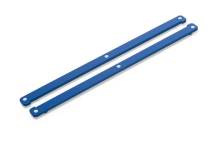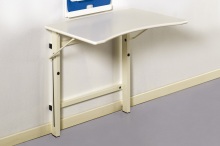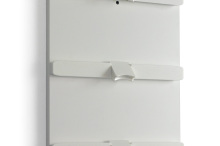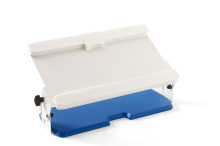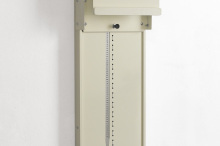Positioned on a table: In this position the task is made easier than when positioned vertically, due to the fact that the patient is not tired out by having to keep their arms raised and stabilised during the task.
Positioned on a vertical panel: To do these tasks, applying pressure by opposing endings is essential. This grip is finer and more precise because it makes it possible to hold an object securely. The thumb opposes the pulp side end of the end of the index finger, gripping the lace and the prone supination movements of the forearm, associated with flexing the wrist, make it possible to do the task and threading the lace through the various holes. For both these tasks the side of the hand acts to stabilise the object, and good coordination is essential to complete the tasks.
Bear in mind that even a minor injury that damages these articular areas can compromise this pincer grip - in fact, complete passive articular control of the distal IF on the second finger is required as well as stability of the deep flexor and synchronised activation of the long flexor in the thumb.
On one side this aid has laces with holes and “eyelets” (closed rings), and on the other laces hooked in an “oblique” direction by chromed hooks, both of which are found on many types of footwear.
